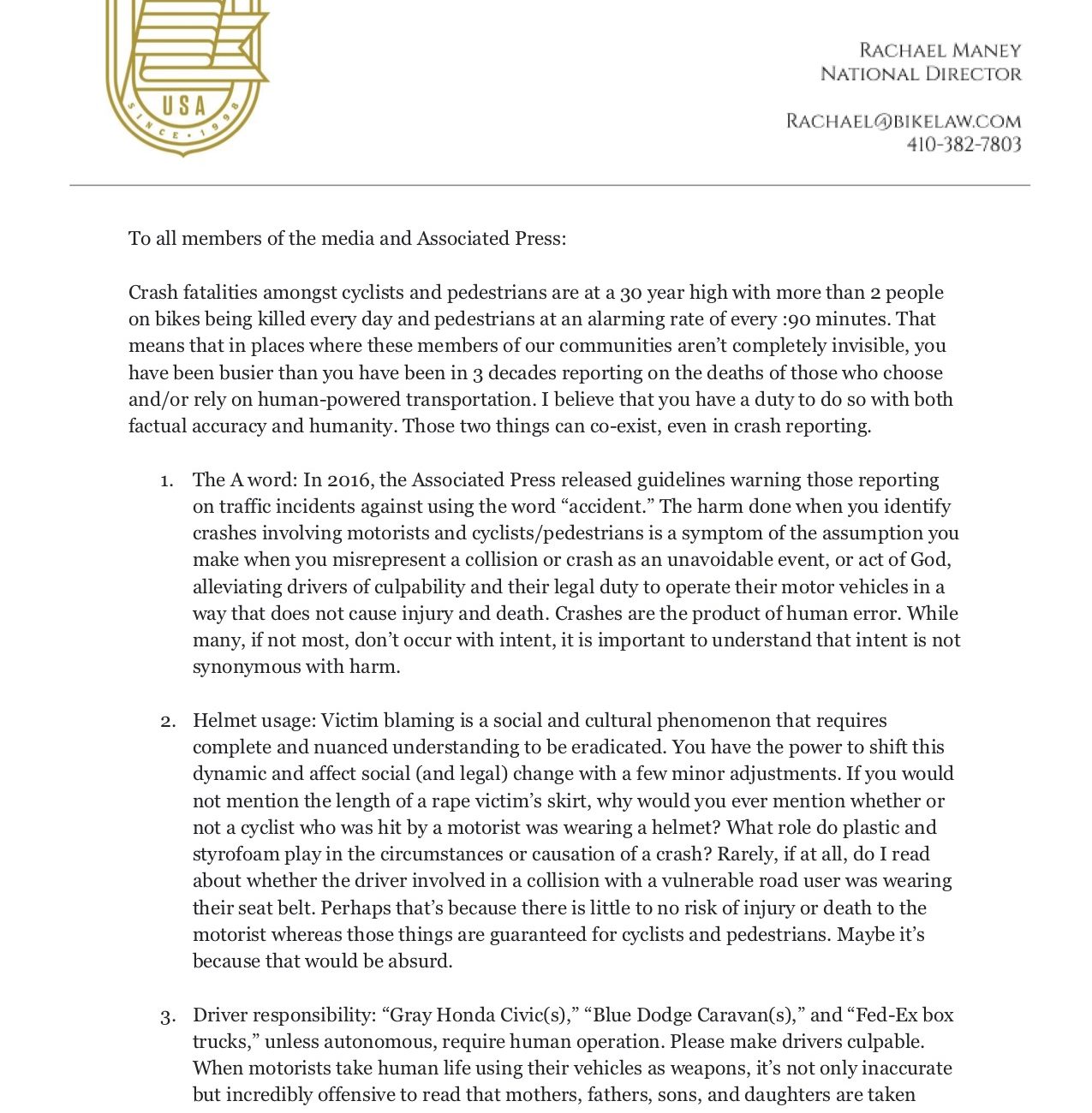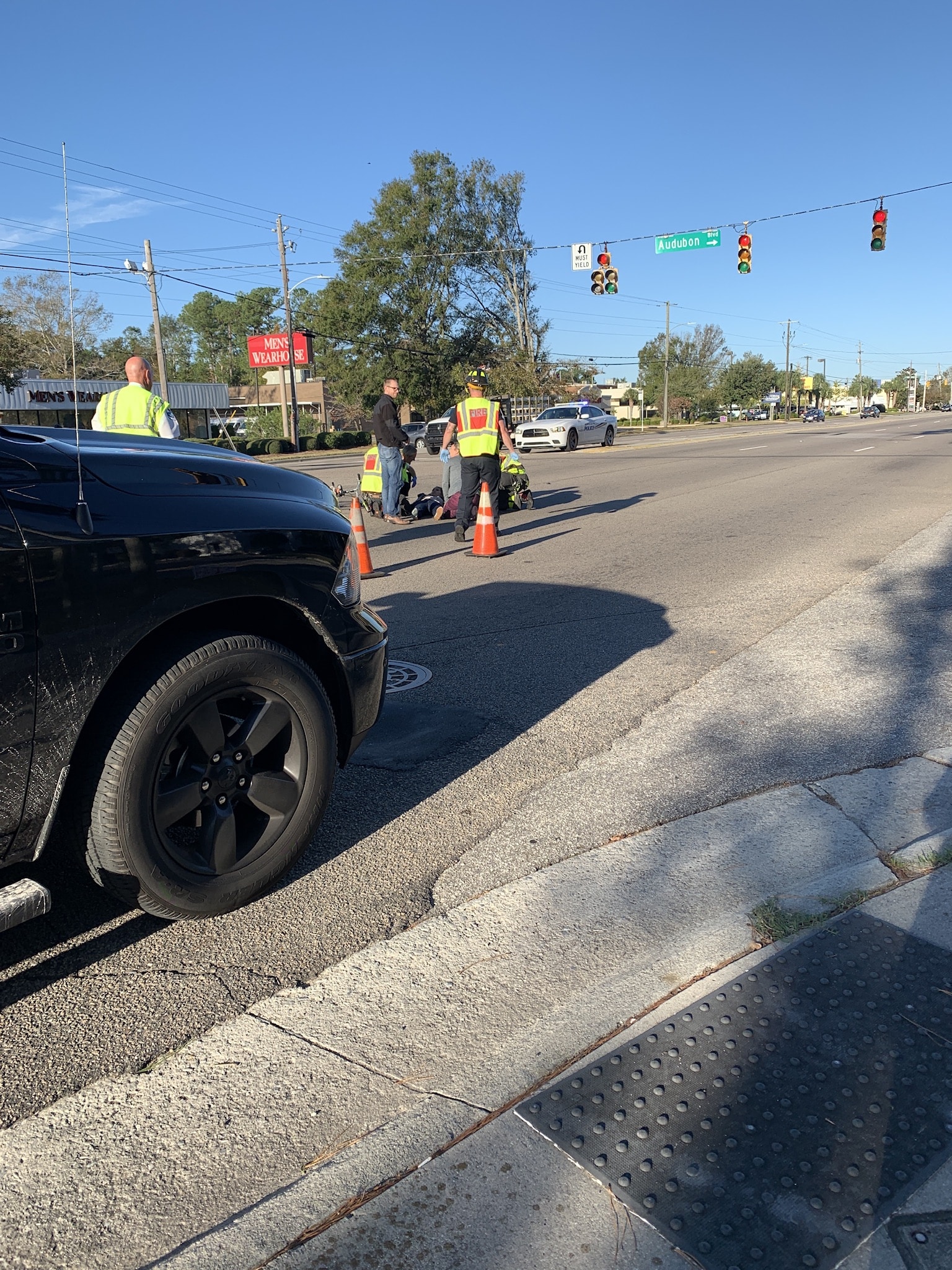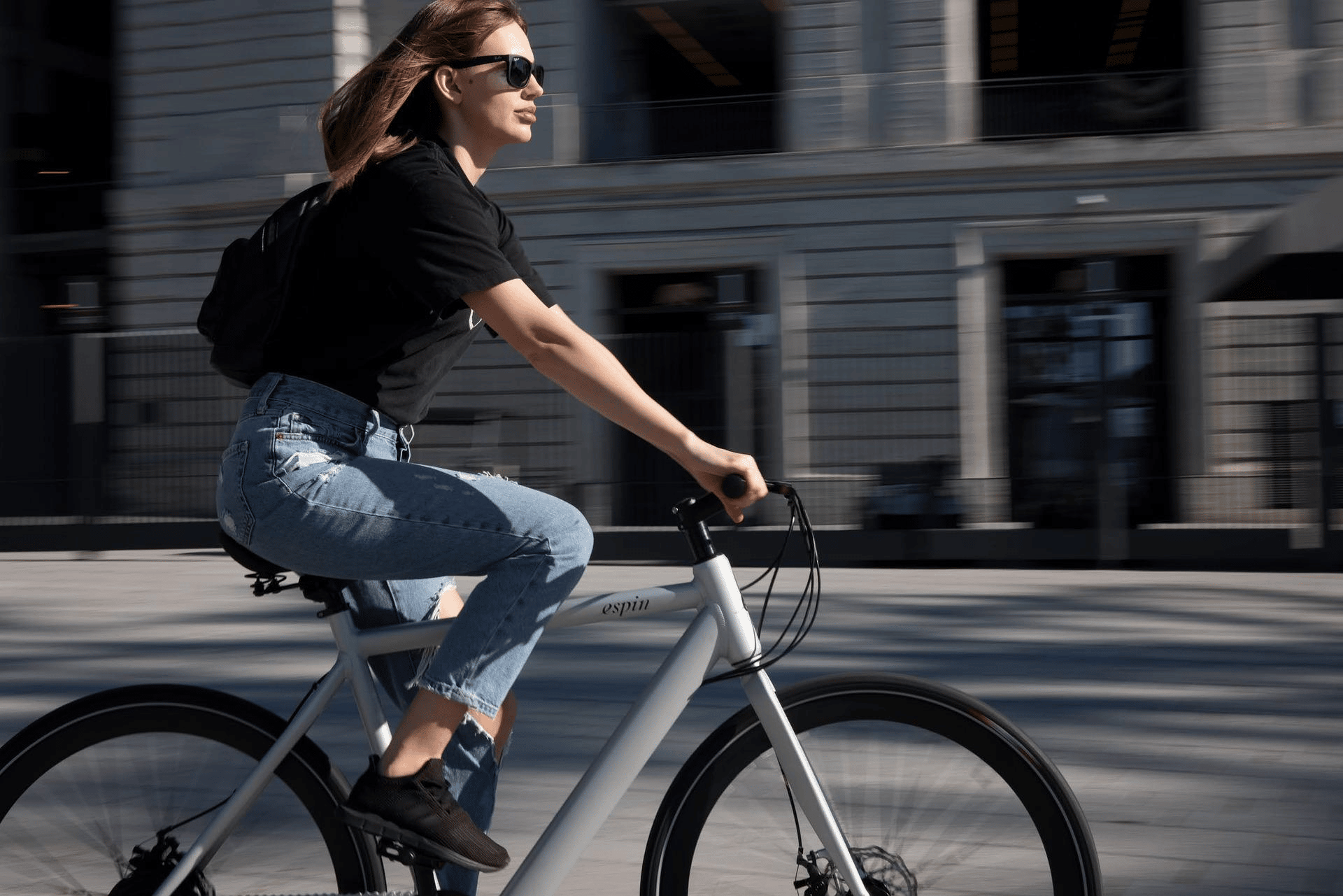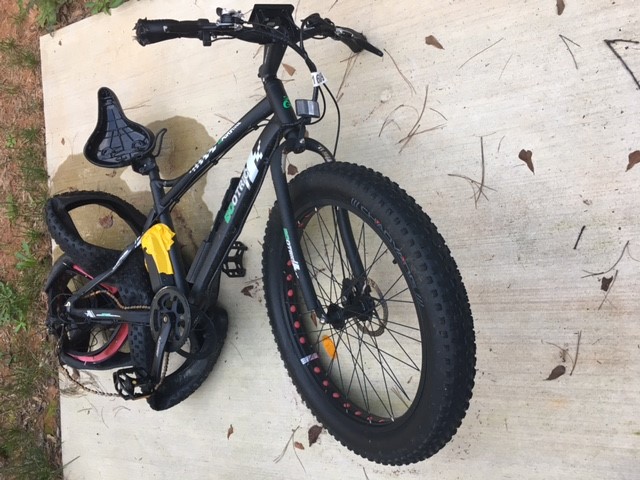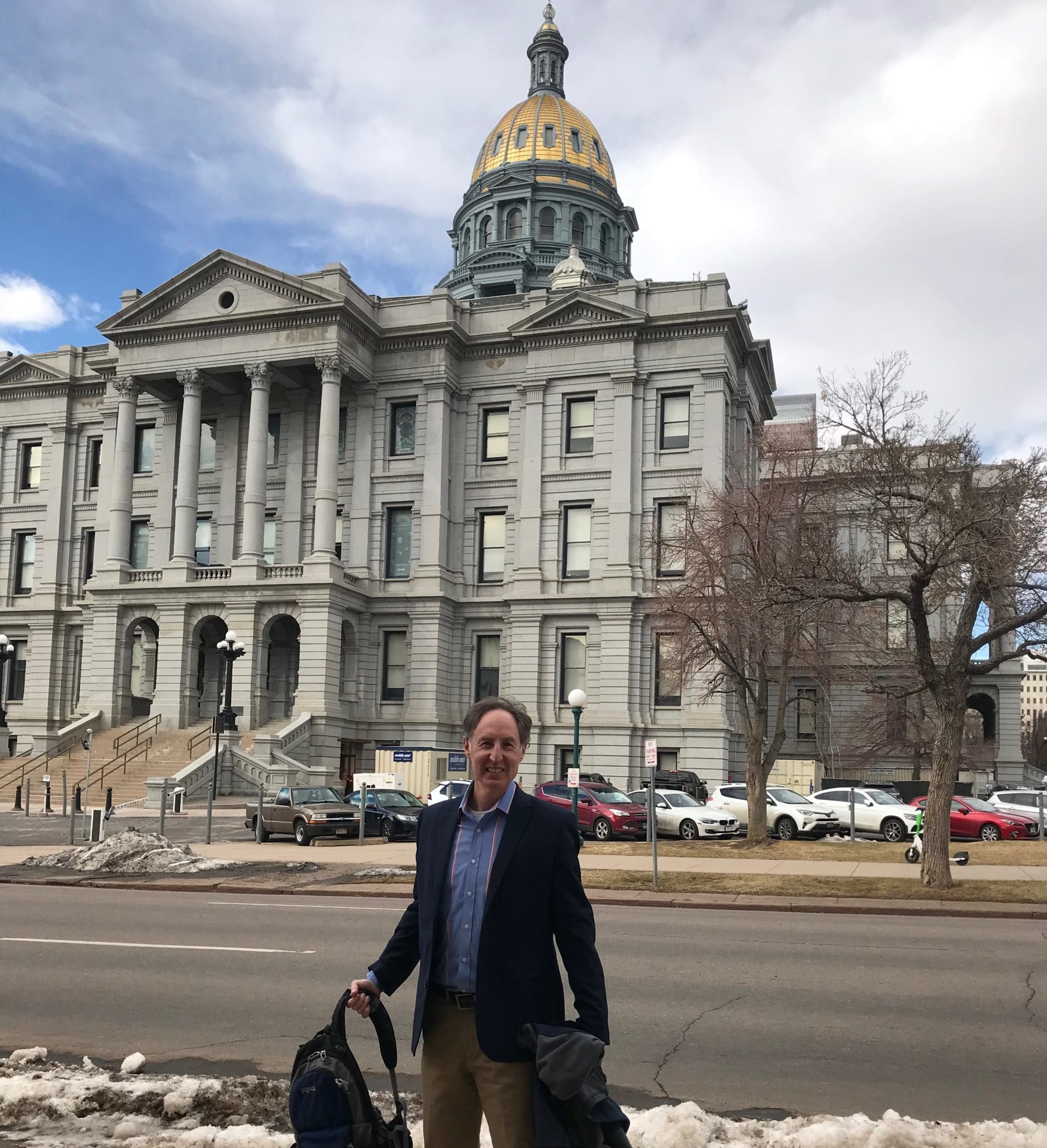It's Crash, Not the A-Word.
CLICK HERE FOR .PDF OF THE LETTER.
[CLICK AGAIN ON THE .PDF AFTER JUMP FOR DOWNLOADABLE VERSION]
To all members of the media and Associated Press:
Crash fatalities amongst cyclists and pedestrians are at a 30 year high with more than 2 people on bikes being killed every day and pedestrians at an alarming rate of every :90 minutes. That means that in places where these members of our communities aren’t completely invisible, you have been busier than you have been in 3 decades reporting on the deaths of those who choose and/or rely on human-powered transportation. I believe that you have a duty to do so with both factual accuracy and humanity. Those two things can co-exist, even in crash reporting.
- The A word: In 2016, the Associated Press released guidelines warning those reporting on traffic incidents against using the word “accident.” The harm done when you identify crashes involving motorists and cyclists/pedestrians is a symptom of the assumption you make when you misrepresent a collision or crash as an unavoidable event, or act of God, alleviating drivers of culpability and their legal duty to operate their motor vehicles in a way that does not cause injury and death. Crashes are the product of human error. While many, if not most, don’t occur with intent, it is important to understand that intent is not synonymous with harm.
- Helmet usage: Victim blaming is a social and cultural phenomenon that requires complete and nuanced understanding to be eradicated. You have the power to shift this dynamic and affect social (and legal) change with a few minor adjustments. If you would not mention the length of a rape victim’s skirt, why would you ever mention whether or not a cyclist who was hit by a motorist was wearing a helmet? What role do plastic and styrofoam play in the circumstances or causation of a crash? Rarely, if at all, do I read about whether the driver involved in a collision with a vulnerable road user was wearing their seat belt. Perhaps that’s because there is little to no risk of injury or death to the motorist whereas those things are guaranteed for cyclists and pedestrians. Maybe it’s because that would be absurd.
- Driver responsibility: “Gray Honda Civic(s),” “Blue Dodge Caravan(s),” and “Fed-Ex box trucks,” unless autonomous, require human operation. Please make drivers culpable. When motorists take human life using their vehicles as weapons, it’s not only inaccurate but incredibly offensive to read that mothers, fathers, sons, and daughters are taken from their loved ones by inanimate multi-ton boxes of steel. The make and model of the involved vehicle is not the responsible party. You would not report on gun violence by solely identifying the type of firearm used to kill. The deceased are worthy of greater respect from you; in the least, they are worthy of the same you give to drivers who are responsible for their deaths. Considering the inability for a deceased cyclist or pedestrian to provide their recitation of the crash that ended their life, lop-sided reports that mention “ driver cooperation” with law enforcement after a crash are yet another way the value of our lives is trivialized by you, the media.
You are not responsible for the uptick in hit and runs, the Distracted Driving epidemic (which is the number one cause of death amongst American teens), or the lack of safe, scalable, effective inclusive infrastructure available to people who choose multi-modal transportation. But you are responsible for the way you act as conduits of important information for your readers. The world is moving on; law enforcement, advocates, educators, policy makers, lawyers, cyclists, and pedestrians all seem to have a better grasp on the importance of words. We know they matter. My challenge and heartfelt plea to you is to consider how factual reporting means removing personal bias and assumptions in the context of the interactions between motorists and our bike/ped community members.
I believe that you, on a fundamental human level, are fully capable of understanding why this is so important and how you can use your power for good while capturing what is actually happening and improving the quality of your work product.
If you have questions or would like to discuss this further, I welcome an open and productive dialogue with the hopes that the several tens of millions of people in this country that choose human powered transportation can find a much needed ally in you.
After all, it’s life and death.
Respectfully,
S/Rachael Maney

Rachael Maney is the Director of the Bike Law Network and of the non-profit Bike Law Foundation.



